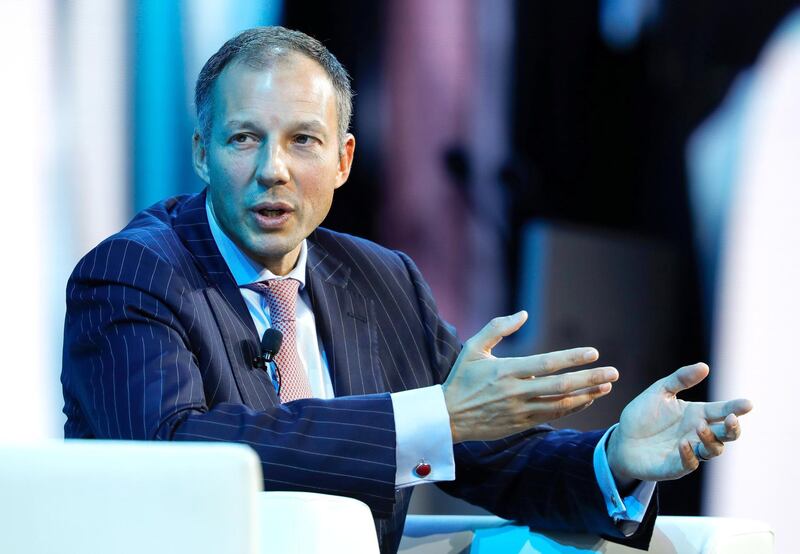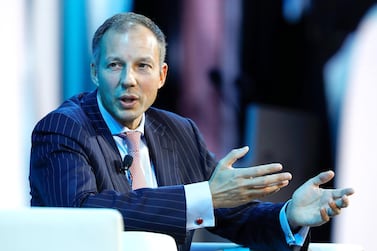An increase in US oil production in recent years has given Washington more leverage in foreign policy matters, allowing it to “manoeuvre and oppose states that use their energy for malign purposes”, a senior US official said.
“Energy represents an important factor in foreign policy,” said Francis Fannon, assistant secretary of state for energy resources.
“The relatively recent growth of US oil and gas production has materially transformed energy geopolitics in [several] areas and with such speed, that friends and foes alike are still adjusting.”
Mr Fannon made the remarks on Tuesday while delivering a speech at the Abu Dhabi International Petroleum Exhibition and Conference that is being held online due to the coronavirus pandemic.
The US has emerged as a dominant player in the energy sector, with oil production rising to about 13 million barrels per day earlier this year, up 240 per cent from 2007 levels.
The US now exports its oil to a number of countries and its natural gas production is also increasing. The additional supply has weakened prices, though. US Liquefied Natural Gas exports have declined from their most recent peak of $16.67 per thousand cubic feet in November 2015 to $5.50 in August this year, according to the US Energy Information Administration.
Mr Fannon said the production increase had helped the country to further exert its influence around the world.
“In partnership with other [oil-] producing nations, including the UAE, we curtailed Iran’s oil exports so that the regime could no longer use oil revenue to fund terrorism and instability in the Middle East and around the world,” he said.
“Together, we removed more than 2 million barrels of Iranian oil off the market without harming the global economy or importing countries.”
Since walking away from the 2015 Iran nuclear deal, known as the Joint Comprehensive Plan of Action, the US has sought to reduce Tehran’s oil exports to zero.
US sanctions restricted Iran's oil and condensate sales. Washington also cancelled waivers granted to eight of the country's significant oil buyers, including India, China, Turkey and Japan, in May last year to reduce the country’s exports.
The US is also playing an important role in the liquefied natural gas sector, Mr Fannon said.
“In 2016, when the US started exporting LNG, we were the 15th-biggest exporter in the world. In 2019, the US was the third-largest exporter and we ship gas to almost 40 countries.”
The US is helping countries in Europe to build LNG terminals to boost “energy diversity”. Washington helped Croatia to build an LNG terminal on Krk Island and it is also helping Greece to expand its existing gas infrastructure and build a new LNG terminal at the port of Alexandroupoli, Mr Fannon said.
“The US is committed to energy diversity and energy partnerships because we recognise that these partnerships can lead to more than just commercial gains. We believe they foster, peace, stability and shared progress.”
Mr Fannon also said the Indo-Pacific region will drive most of the world’s energy demand growth through to 2040 and require investment worth trillions of dollars.
“We are helping countries in the region build free, fair [and] transparent energy markets, as well as develop their indigenous energy resources through the State Department-led initiative called Asia Edge," he said.
"We have dedicated over $140 million in technical assistance to support energy security and diversification, access and trade across Indo-Pacific region.”








